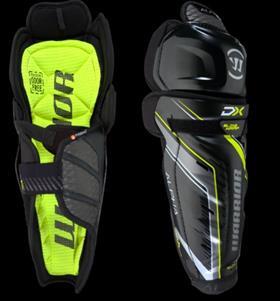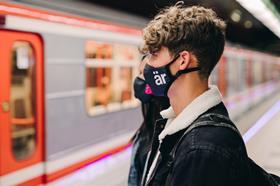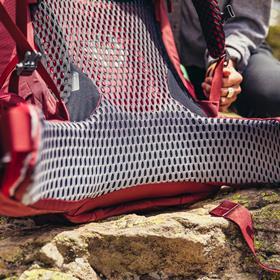Swedish firm Polygiene®, the market leader in branded antimicrobial and stay-fresh treated textiles, serving more than 200 global premium brands, has witnessed a big increase in new accounts and interest in product categories beyond apparel.
While there was already strong demand for antimicrobial protection in Asia due to earlier pandemic experiences in that region, the global Covid-19 pandemic outbreak ignited a rapidly growing consumer awareness and desire for antimicrobial properties also in the Western world. Now, consumer priorities have changed.
In a survey conducted last year by MESH011, published in Trend Insight magazine, 86% of respondents said that they now specifically seek out garments made with multi-functional fabrics with ‘antimicrobial’ topping the list. 59% of respondents said they would pay more for active apparel or footwear described as having some kind of antimicrobial attribute.
Extensive wear trials

Technologies such as Polygiene BioStatic – an antimicrobial technology that stops the growth of odor-causing microbes – have been put through rigorous testing with athletes by major sportswear brands, Adidas, Athleta and Warrior Sports, to name a few. The outcome is a new wide array of sports products treated with Polygiene technology.
Warrior Sports, for instance, has applied Polygiene BioStatic technology to a large portion of their hockey collection, a sport that is synonymous with stinky gear. Utilizing Polygiene’s performance and know-how to keep their gloves and other body armor fresh, odor-free and in use longer.
Antiviral treatment
Interest in antiviral technologies is also booming by both medical staff and the public. Polygiene ViralOff, used to treat face masks, gloves, scrubs and other equipment where the functionality is relevant, as well as bedsheets and even furniture, reduces microbes by over 99% on the material (international standard ISO18184:2019 (SARS-CoV-2, H3N2, H1N1).**
The Czech premium fashion accessories brand, är, is among the latest to launch these types of products treated with Polygiene ViralOff. These include a line of multi-use face masks that pass the stricter regulations in regions that require FFP2 certified respirators in public spaces.

Backpacks that stay fresher for longer
Polygiene technologies are also being applied to a growing range of products in the outdoor sector, such as US brand Gregory’s new Kalmia and Katmai backpacks, launched for Spring 2021.
Polygiene BioStatic technology is applied to all the material across the back panel – the area that comes into contact with the wearer’s body. The validation of the technology came initially from Gregory’s extensive testing process, in which all field-tested backpacks are sent to their headquarters for a post-mortem review.
“Our testers will use these packs for weeks and months on places like the AT [Appalachian Trail], where the packs are constantly inundated with sweat and bacteria from the wearer’s body,” Matt Connors, the Gregory product line manager, explains.
“By the time they get to us, they smell awful. It turns out that sweat odor is a chief complaint amongst our testers and for some becomes reason enough not to want to wear the pack.”

From fast consumables to durables
Polygiene is now helping change the way we view our garments and other gear – from fast consumables to durables.
Research indicates an increased desire among consumers to purchase products that last longer. A poll carried out by McKinsey & Company in April 2020 found that as a result of the pandemic, 65% of respondents were planning to purchase more durable fashion items, with 71% planning to keep the items they already have for longer. Additionally, 57% of respondents said they were willing to repair items to prolong usage.
And a study in Sweden completed last year2 found that using garments twice as many times in their original form cuts the climate impact by almost 50%. This reduction is mainly due to fewer new garments needing to be produced.
As brands search for ways to extend the lifetime of their products, Polygiene technologies are helping them make this happen. That’s because, by controlling odor in textiles, they allow us to significantly reduce the number of times we wash a product – to, quite simply, wear more and wash less.
As well as developing new technologies, Polygiene works closely with their partners to help them deliver on their customers’ needs. The company provides technical, R&D, testing and marketing support, ultimately ensuring that each product featuring its treatments has a high sell-through rate.
*Polygiene ViralOff® does not prevent diseases but protects the treated material.
** Tested on certain materials according to ISO18184 on SARS-CoV-2, H3N2, H1N1, with over 99% reduction within 2 hours, in the product or the material.
1 https://www.trendinsightmag.com/textile-insight/2020/july-august-2020.html
2 Sandin, G., Roos, S., Spak, B., Zamani, B. and Peters, G., 2019, Environmental assessment of Swedish clothing consumption: Six garments – sustainable futures (http://mistrafuturefashion.com/ wp-content/uploads/2019/08/G.Sandin-Environmental-assessment-of-Swedish-clothing-consumption. MistraFutureFashionReport-2019.05.pdf; accessed 10 March 2020).




